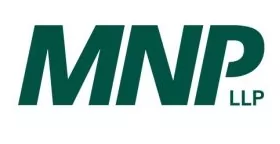Nothing is more certain than death and taxes.
In a letter from 1789, Benjamin Franklin wrote to the son of a clockmaker, Jean-Baptiste Leroy, this infamous line:
"In this world nothing can be said to be certain, except death and taxes."
The irony of time is it passes on and eventually, so do each of us. The burden of taxes just seems to never go away.
We all have had family and friends pass on. All the emotions, memories and funeral arrangements help us deal with our time of mourning. Unfortunately, we also have to make sure to finalize income tax and sales tax filings.
The focus here is on those individuals that operated a business and were registered for GST/HST. What is supposed to happen to those assets when a person dies? What happens to the person's GST/HST account? Does the business cease to exist? When the assets are transferred to a beneficiary(s), do they now have a GST/HST liability? These are common questions we are asked as indirect tax specialists. Like every other situation, the facts guide us to the solution. While a person can plan for their passing, certain steps must be reactive.
Generally, when a person closes their GST/HST account, any taxable property on hand at the time that was used in the taxable activities is deemed to be disposed and removed from taxable activities. This could have significant liabilities to the registrant.
Although a person dies, the GST/HST account does not cease to exist. There will be property in the business and supplies can still be supplied by the Estate. The normal rules continue to apply to the individual's GST/HST registration. While the CRA may try to convince the Executor the individual's account must be closed as of the date of death, this is not necessarily correct. The impact of closing the account must be understood before agreeing to do so.
Arguably, the business continues on, but the GST/HST account should be updated with the date of death notification to reflect the Estate is now the person that is registered under that account. The GST/HST account will now reflect "The Estate of (individual's name)". Business activity continues until there is no longer any commercial activity.
The normal rules would apply on the transfer of property that was used in commercial activities. The Estate will be responsible for collecting and remitting any applicable taxes. In some cases, the beneficiaries will have a GST/HST impact because of the property they receive. Many times this can be managed by being registered on or before they receive the property being supplied. It is not required that they be registered as of the date of death, but on or before the date of the supply to the beneficiary. This may still have a GST-cash flow impact. What follows is another option to consider.
There may be relief for the transfer of property of a deceased individual to another individual who is a beneficiary. This will not apply for any other type of person but for an individual. There are conditions to this relief, but essentially the deceased individual was registered at the time of death, immediately before their death they held the property for use, consumption or supply in the course of commercial activities. The Estate makes a supply of this property in accordance with the person's will or under laws relating to the succession of the property on death and the supply is to another individual who is a beneficiary of the Estate. The individual beneficiary, as the recipient, must be a registrant and is receiving the property for use, consumption or supply in the course of their commercial activities. The Estate and beneficiary are to jointly elect to have the GST relief apply. Where these conditions are met, no GST/HST will apply under this transfer.
There is no election form to complete or anything to file with the CRA. The intent should be documented at a minimum. What this means is the 'election' is similar in concept to the business sale election (Form GST44) and the transfer occurs GST-free. However, there is no requirement that the supply is of an entire business, nor that it be supplied to one single recipient. It is a very broad application, providing it falls within the conditions outlined above.
This is another tool in managing the impact of the GST/HST. If done properly, it can eliminate an unexpected financial impact on a beneficiary. They should not have to deal with the potential financing to fund the tax until it was refunded as an input tax credit or a rebate. It should apply to all forms of property under these conditions, provided it was used in the taxable activities of the deceased. There is already a workaround for real property when acquired by a registered purchaser, this Estate provision gets to the same place and allows for other property to be transferred without a GST-cash flow outlay. In other words, another worry that can be dealt with fairly easily.
The GST registration should be put in place on or before the beneficiary is to receive the property. The GST/HST account of the deceased should be closed when all the property has been transferred and no more activity will take place.
The message here is we can mitigate the mishandling of the GST/HST by being on top of this type of situation right away. While it is already a difficult situation, it should be one of those questions asked when getting the affairs in order of the deceased.
The content of this article is intended to provide a general guide to the subject matter. Specialist advice should be sought about your specific circumstances.

